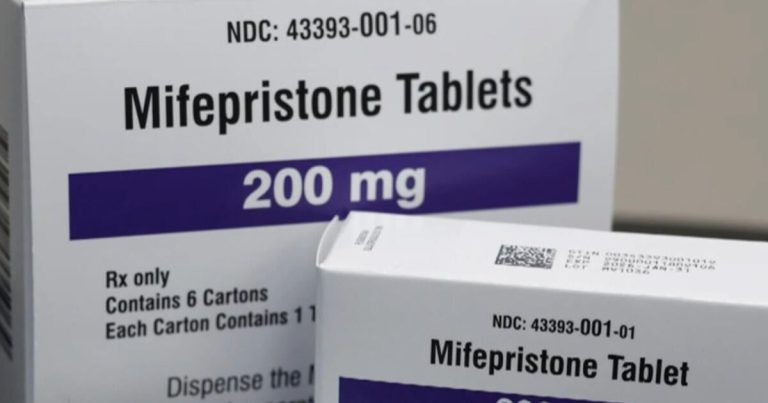
Dementia cases in the U.S. are expected to double by 2060, with an estimated one million people diagnosed per year, according to a new study led by Johns Hopkins University and other institutions.
Researchers found that Americans’ risk of developing dementia after age 55 is 42%, double the risk that has been identified in prior studies, a press release stated.
For those who reach 75 years of age, the lifetime risk exceeds 50%, the study found.
AGING ‘HOTSPOT’ FOUND IN BRAIN, RESEARCHERS SAY: ‘MAJOR CHANGES’
Women face a 48% average risk and men have a 35% risk, with the discrepancy attributed to women living longer than men.

Dementia cases in the U.S. are expected to double by 2060, with an estimated one million people diagnosed per year. (iStock)
The study, which was published in the journal Nature Medicine on Jan. 13, analyzed data from the Atherosclerosis Risk in Communities Neurocognitive Study (ARIC-NCS), which has tracked the cognitive and vascular health of nearly 16,000 adults since 1987.
CLICK HERE TO GET THE FOX NEWS APP
Aging is the biggest risk factor for dementia, with other factors including genetics, obesity, hypertension, diabetes, unhealthy diets, sedentary lifestyles and mental health disorders, the release said.
Dementia risk was found to be higher among people who have a variant of the APOE4 gene, which has been linked to late-onset Alzheimer’s disease. Black adults also have a higher risk.

Researchers found that Americans’ risk of developing dementia after age 55 is 42%, double the risk that has been identified in prior studies. (iStock)
“Our study results forecast a dramatic rise in the burden from dementia in the United States over the coming decades, with one in two Americans expected to experience cognitive difficulties after age 55,” said study senior investigator and epidemiologist Josef Coresh, MD, PhD, who serves as the founding director of the Optimal Aging Institute at NYU Langone, in the release.
CLICK HERE TO SIGN UP FOR OUR HEALTH NEWSLETTER
Research has shown that the same interventions used to prevent heart disease risk could also prevent or slow down dementia, the study suggested.

Research has shown that the same interventions used to prevent heart disease risk could also prevent or slow down dementia. (iStock)
“The pending population boom in dementia cases poses significant challenges for health policymakers in particular, who must refocus their efforts on strategies to minimize the severity of dementia cases, as well as plans to provide more health care services for those with dementia,” said Coresh.
What needs to change?
Professor Adrian Owen, PhD, neuroscientist and chief scientific officer at Creyos, a Canada-based company that specializes in cognitive assessment and brain health, referred to the increase in dementia cases as a “tidal wave.”
“This new study’s anticipated surge in dementia cases underscores the urgent need for early and accurate detection,” he told Fox News Digital.
“By catching issues early, we give people the power to make lifestyle adjustments, seek available treatments and plan their futures with clarity.”
“By identifying cognitive decline at its earliest stages, we have an opportunity to intervene before patients and families bear the full weight of the disease.”
Owen recommends conducting regular cognitive assessments as part of routine check-ups to proactively identify early signs of cognitive decline.
“By catching issues early, we give people the power to make lifestyle adjustments, seek available treatments and plan their futures with clarity,” he said.

“By identifying cognitive decline at its earliest stages, we have an opportunity to intervene before patients and families bear the full weight of the disease.” (iStock)
Maria C. Carrillo, PhD, chief science officer and medical affairs lead for the Alzheimer’s Association in Chicago, said there is an “urgent need” to address the global crisis of Alzheimer’s disease and dementia.
DEEP SLEEP CAN KEEP TWO BIG HEALTH PROBLEMS AT BAY, NEW STUDIES SUGGEST
To help keep the aging brain healthy, the Alzheimer’s Association published its report 10 Healthy Habits for Your Brain. Some of the tips are listed below.
– Participate in regular physical activity.
– Learn new things throughout your life and engage your brain.
– Get proper nutrition — prioritize vegetables and leaner meats/proteins, along with foods that are less processed and lower in fat.
– Avoid head injury (protect your head).
– Have a healthy heart and cardiovascular system — control blood pressure, avoid diabetes or treat it if you have it, manage your weight and don’t smoke.
For more Health articles, visit www.foxnews.com/health
The research was funded by the National Institutes of Health.
Fox News Digital reached out to the researchers for additional comment.






